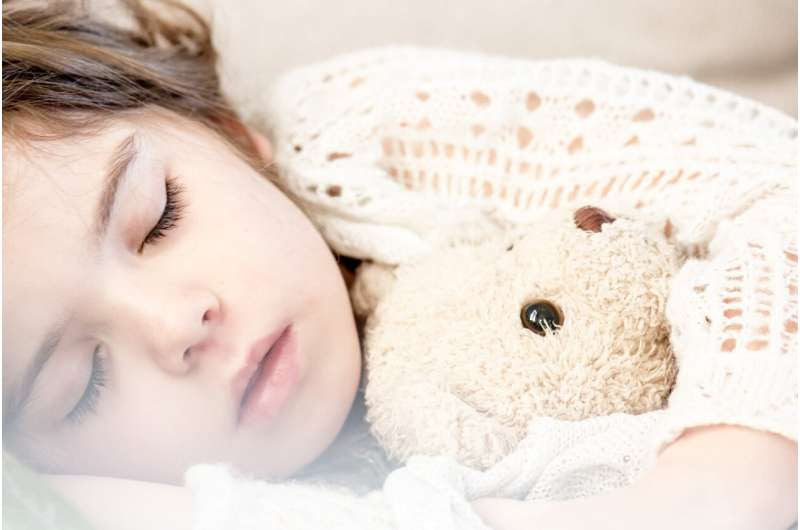by Wiley

Credit: Pixabay/CC0 Public Domain
Previous research has identified genetic variants associated with insomnia and sleep duration in adults. Now a study published in the Journal of Child Psychology and Psychiatry has found that these variants also likely affect sleep quality and quantity in children.
In the study of 2,458 children of European ancestry, children who were genetically predisposed to insomnia (based on a polygenic risk score developed for adults) had more insomnia-like sleep problems such as frequent awakenings or difficulty initiating sleep, as reported by their mothers, whereas those who were genetically predisposed to longer sleep had longer sleep duration but were also more awake during the night in adolescence.
The authors noted that by showing that genes predisposing adults to insomnia also play a role in poor sleep from toddlerhood to adolescence, they provide indirect evidence for a “poor sleeper” trait across the lifetime.
“Our study shows that genetic susceptibility for poor sleep translates from adults to children. This finding emphasizes the importance of early recognition and prevention,” said corresponding author Desana Kocevska, Ph.D., of the Netherlands Institute for Neuroscience and the Erasmus MC University Medical Center Rotterdam.
More information: Are some children genetically predisposed to poor sleep? A polygenic risk study in the general population, Journal of Child Psychology and Psychiatry (2023). DOI: 10.1111/jcpp.13899. onlinelibrary.wiley.com/doi/10.1111/jcpp.13899
Journal information: Journal of Child Psychology and Psychiatry
Provided by Wiley

Leave a Reply